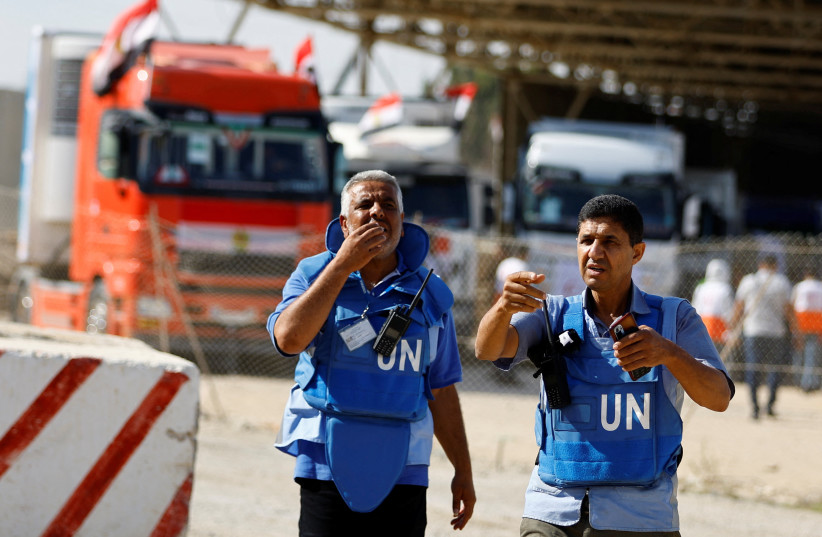A second convoy of aid trucks entered the Egyptian side of the Rafah crossing on Sunday en route to the Gaza Strip, as the US continued to stress the importance of humanitarian assistance to the war-torn enclave of 2.3 million people.
“We want to make sure that we have sustained delivery of food, medicine, water, the things that people need,” US Secretary of State Antony Blinken told CBS on Sunday.
There were a total of about 19 trucks in Sunday’s convoy carrying medical and food supplies, security and humanitarian sources said.
A first convoy of 20 trucks of badly needed supplies entered Gaza on Saturday through Rafah, which had previously been out of operation after bombardments hit the Gaza side of the border. Wrangling over conditions for delivering aid also delayed the convoy’s arrival.
Distribution of those supplies began on Sunday, but aid officials were still warning of a humanitarian disaster as supplies of food, water, and fuel ran low.

Israel had closed its two crossings into Gaza and prevented all food, fuel, electricity, and food from reaching the Strip until Hamas released the 212 captives it took during its October 7 infiltration into Israel. During the terrorist attack, more than 1,400 civilians and soldiers were killed.
More than 4,500 Palestinians in Gaza have been killed since then, either due to IAF airstrikes or failed Palestinian rocket launches. It is estimated that some one million Palestinians have fled their homes.
US diplomats work to bring aid to Gazan civilians
David Satterfield, the US special envoy for Middle East humanitarian issues, on Sunday told MSNBC he was working on creating a mechanism for the regular flow of aid.
Satterfield was also trying to convince Israel to restore the flow of water through pipelines into Gaza.
US President Joe Biden spoke with Pope Francis on Sunday and discussed the war between Israel and Hamas, the White House and the Vatican said in separate statements. Biden also spoke with Prime Minister Benjamin Netanyahu. He has personally been involved in restoring humanitarian aid to Gaza.
The Rafah crossing, the main entry and exit point to Gaza that does not lead to Israel, has become the focus of a push to deliver aid as humanitarian conditions in Gaza worsen.
UN officials say at least 100 trucks a day would be required in Gaza to cover urgent needs. Before the outbreak of the war, several hundred trucks had been arriving in the enclave daily.
Work was under way to develop a “light” inspection system, whereby Israel could check the shipments but ensure a sustained flow, UN humanitarian chief Martin Griffiths told Reuters on Saturday.
